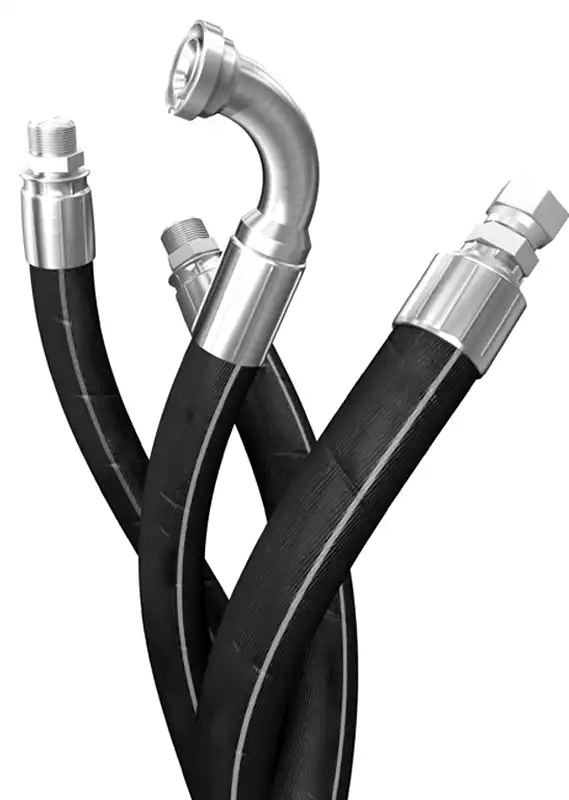As a leading hydraulic hose manufacturer, Kingdaflex can supply bulk hydraulic hoses with quality assurance and competitive prices. With wide applications, you can use the hydraulic hose for various industries, and you can get the wholesale hydraulic hoses from our hydraulic hose manufacturer directly. Ask a quick quote to consult us everything about hydraulic hoses now.
Hydraulic hoses are widely used in the high pressure fluid power applications, from automative to heavy-duty machinery, to transfer the hydraulic fluids to the working engine on the machinery.
We focus on the each step of hydraulic hose manufacturing, from selecting raw material to final packaging before loading, to ensure the best quality for your hydraulic hoses.
Here we can supply bulk hydraulic hoses to meet your requirements, varied in different diameters, lengths, and reinforcement types, and flexible for you to choose your desired specifications for your project.
And our hydraulic hoses are filtered by diameters, lengths, reinforcement layers, covers, surfaces and etc, here are some hot-selling hydraulic hoses in the following, and welcome to contact us at any time to ask for the hydraulic hose catalogue.
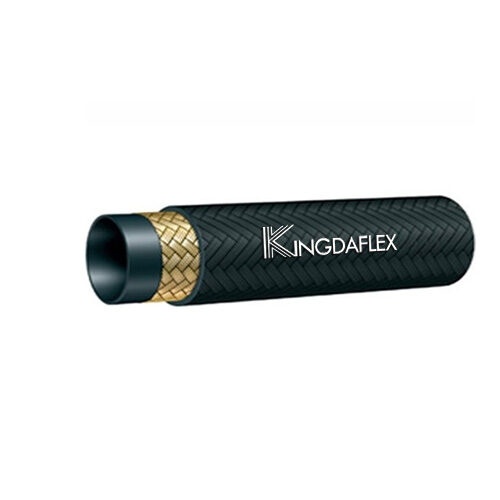
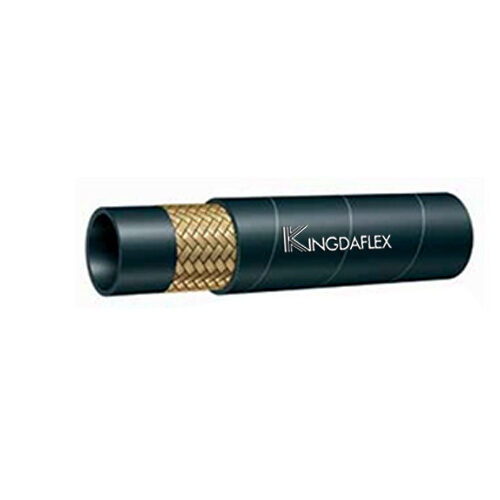
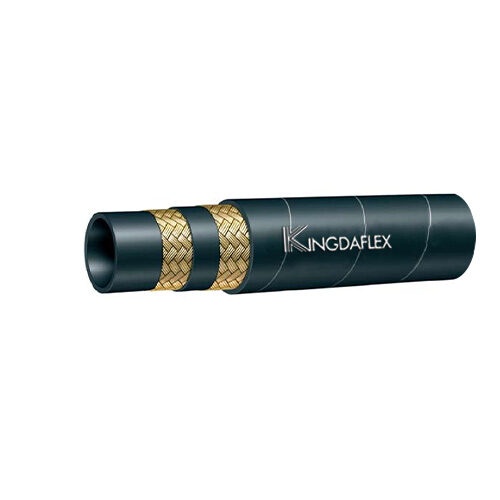
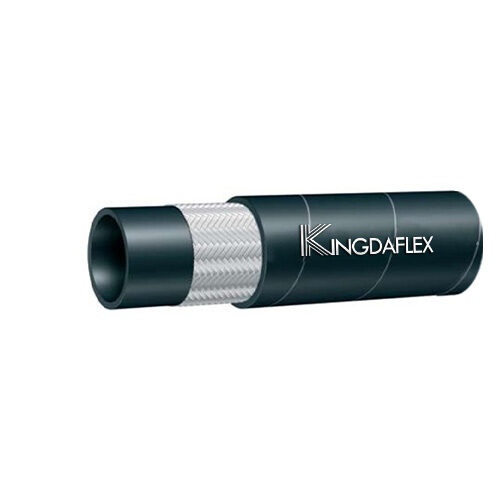



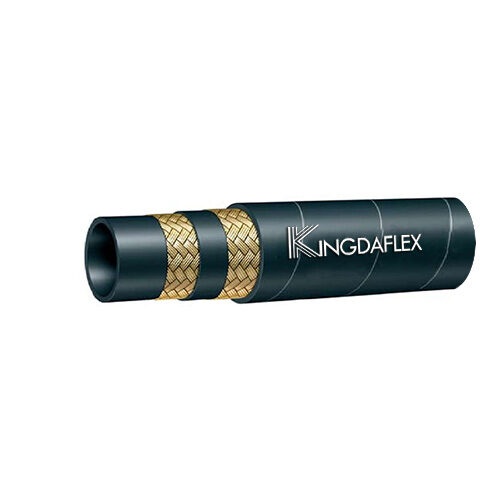
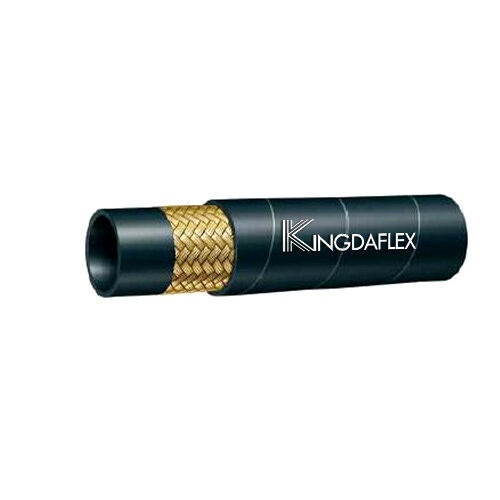
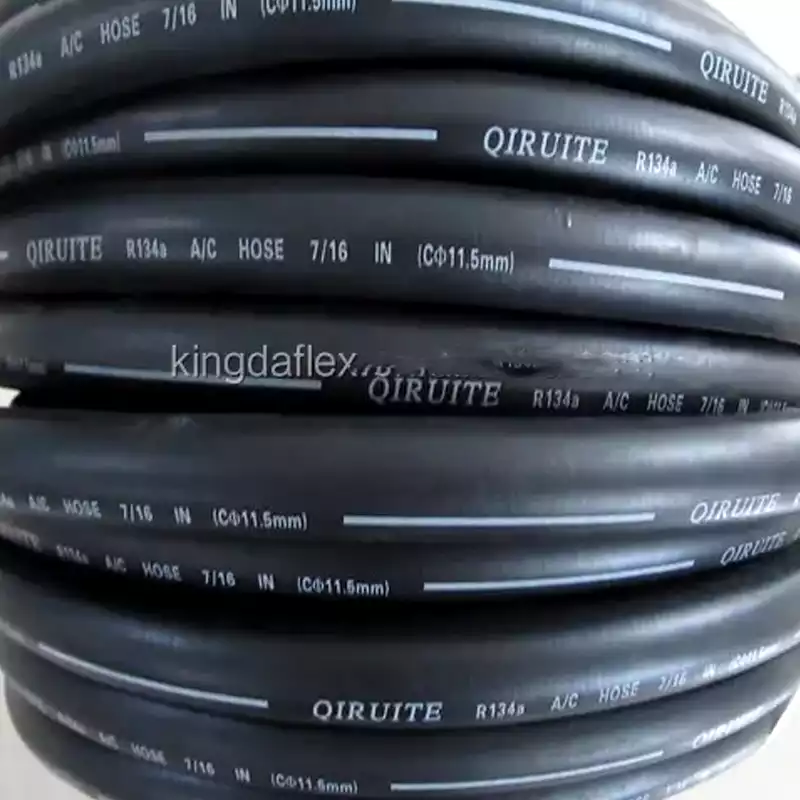
Kingdaflex ONLY select the premium raw rubber material to ensure the best quality from the root. Wear-resistant, long-lasting and durable to provide you the best hydraulic hoses.
Kingdaflex 100R3 hydraulic hose can withstand high temperature, up to 180 degrees, so that they can be applied for various conditions, even in the hazard working environment.
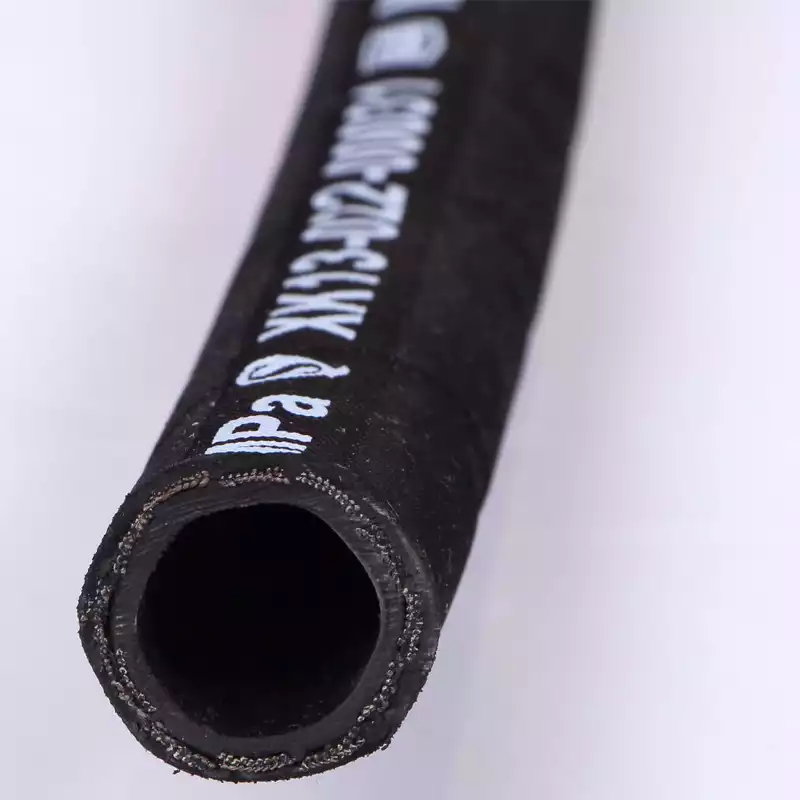
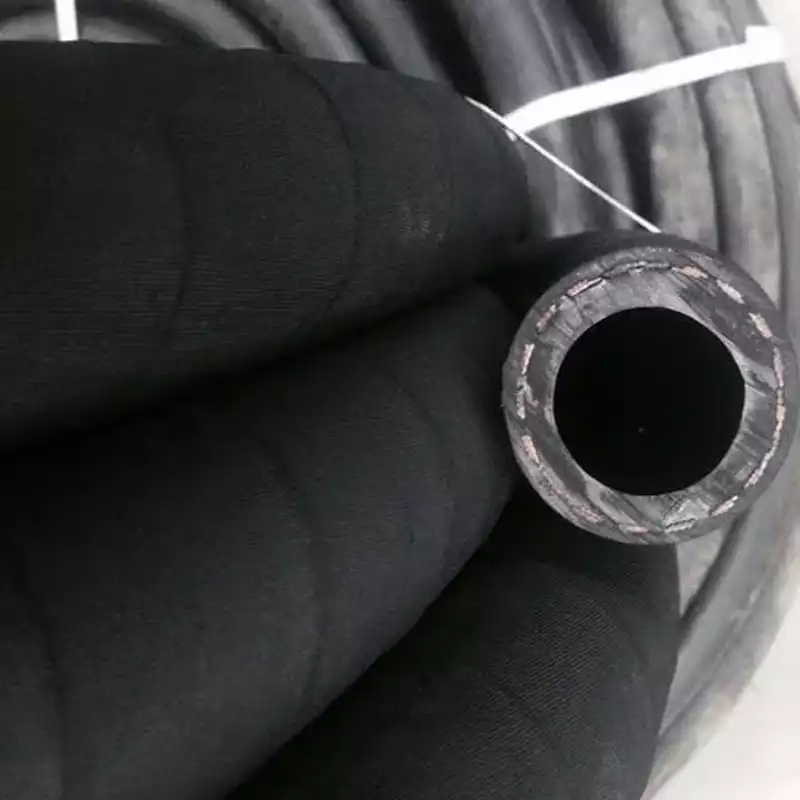
100R3 hydraulic hose is often used in industrial machinery, such as presses, conveyors, and other equipment, to transfer hydraulic fluid from the pump to the actuators and other components.
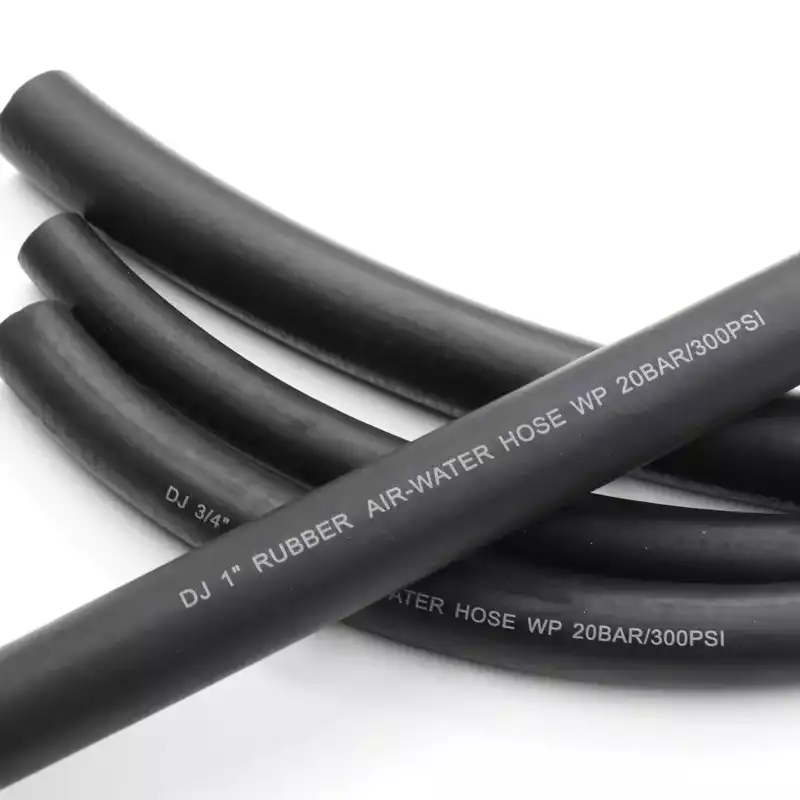
100R3 hydraulic hose is often used in agricultural equipment, such as tractors, combines, and other machines, to transfer hydraulic fluid from the pump to the actuators and other components.
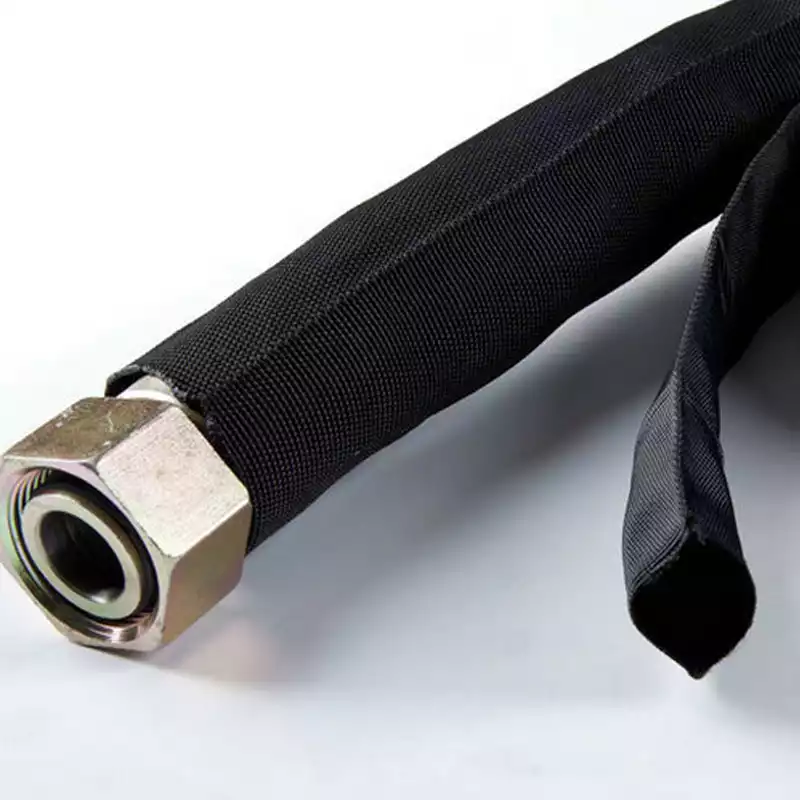
100R3 hydraulic hose can also be used in general hydraulic systems, such as power units, control systems, and other applications, to transfer hydraulic fluid between components.
A hydraulic hose is a flexible, often reinforced conduit used to transmit hydraulic fluid within a hydraulic system. It facilitates the transfer of force between components and is a critical part of many industrial applications.
Bulk hydraulic hoses are hoses purchased in larger quantities, typically in spools or coils. Buying in bulk is cost-effective and convenient for industries with regular hydraulic maintenance needs.
Hydraulic hoses are commonly made from synthetic rubber, thermoplastics, or Teflon. The choice of material depends on the specific application, pressure requirements, and environmental factors.
Consider factors such as hose size, temperature range, pressure rating, and compatibility with hydraulic fluids. Consulting with a hydraulic specialist can ensure you select the right hose for your application.
Hose size relates to the internal diameter of the hose. Choosing the correct size ensures proper fluid flow and prevents inefficiencies or damage to the hydraulic system.
Yes, many suppliers offer customization options for bulk hydraulic hoses. This includes variations in length, end fittings, and specific features tailored to your application.
Store hoses in a cool, dry place away from direct sunlight and contaminants. Proper storage prevents degradation and ensures the hoses maintain their integrity.
The lifespan varies based on factors like usage, environmental conditions, and maintenance. Regular inspections and replacement of worn hoses are essential to prevent failures.
Regular inspections are key. Replace hoses if signs of wear, damage, or reduced performance are observed. Preventative replacements can avoid costly system failures.
We are leading hydraulic hose manufacturer from China, and please feel free to contact us at any time if you are looking for hydraulic hoses, hydraulic hose fittings, industrial hoses, and other hose related products. Welcome to get in touch with us any time to get more hose solutions for your projects.
If you are looking for a professional hydraulic hose & industrial hose manufacturer, Kingdaflex will be your best choice. We provide better hydraulic hose wholesale and the best solution to help your hydraulic projects. Welcome to contact us at any time.
